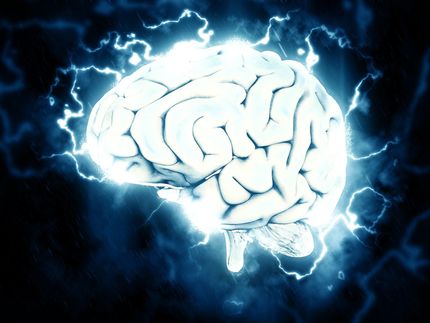Alzheimer's drug boosts perceptual learning in healthy adults
Advertisement
Research on a drug commonly prescribed to Alzheimer's disease patients is helping neuroscientists at the University of California, Berkeley, better understand perceptual learning in healthy adults. In a new study, published in the journal Current biology, researchers from UC Berkeley's Helen Wills neuroscience Institute and School of Optometry found that study participants showed significantly greater benefits from practice on a task that involved discriminating directions of motion after they took donepezil, sold under the brand name Aricept, compared with a placebo.
Neither the researchers nor the participants knew whether they were taking the placebo or donepezil, a cholinesterase inhibitor that enhances the effects of the neurotransmitter acetylcholine in the brain. Cholinesterase inhibitors act by blocking an enzyme that breaks down acetylcholine. Acetylcholine is known to play an important role in mediating visual attention and, in animal studies, has been found to promote changes in the brain that are associated with learning.
Donepezil, like other cholinesterase inhibitors, is used to treat early stages of Alzheimer's disease and dementia. Previous research on donepezil has focused primarily on its beneficial effects on quality of life and clinical symptoms in patient populations. However, little was known about the specific cognitive processes that are enhanced by this drug.
"We wanted to better understand the biological mechanisms that underlie the ability to learn new tasks and to shed light on which specific neural processes are being enhanced by donepezil," said the study's principal investigator, Michael Silver, UC Berkeley assistant professor of optometry and neuroscience. "This is the first study to show that donepezil can enhance learning of a new skill, even in normal, healthy people."
The researchers tested 12 healthy, non-smoking adults ages 18-35. Subjects were tasked with detecting whether or not two fields of moving dots, presented one after the other, were moving in the same direction. Each subject completed two 5-day courses of training on this task. In one of these courses of training, subjects ingested 5 milligrams of donepezil before every training session, and in the other, they took a placebo capsule before each training session. On average, the amount of improvement in performance of the task due to training increased two-fold when training occurred under the influence of donepezil. However, the study authors noted that the improvements in the task being learned did not result in the same amount of improvement in performance on new motion direction discrimination tasks.
"The effects of donepezil were very specific to the task that the subjects were learning and practicing, and improvements elsewhere were much more moderate," said study lead author Ariel Rokem, a UC Berkeley post-doctoral fellow at the Helen Wills Neuroscience Institute. "As a comparison, with practice, a fruit inspector may become very good at judging small differences in color among red apples, but this learning may not completely transfer to the ability to discriminate shades of green apples."
It would be helpful to test the effectiveness of donepezil on other forms of learning, the study authors said. "We've established that donepezil enhances learning, so now we want to understand how this happens in the brain," said Silver. "We have a study underway where we use brain imaging to measure how the brain changes with learning and the impact of donepezil on these neural changes."
The researchers said that if enhancing the activity of acetylcholine in the brain is shown to benefit other forms of perceptual learning, it could eventually lead to clinical treatments for people with conditions other than Alzheimer's.
"Perceptual learning tasks are used to help patients with clinical conditions such as dyslexia and amblyopia," said Rokem. "Further research could find that cholinesterase inhibitors boost the effectiveness of perceptual learning treatments for these patients."




























































